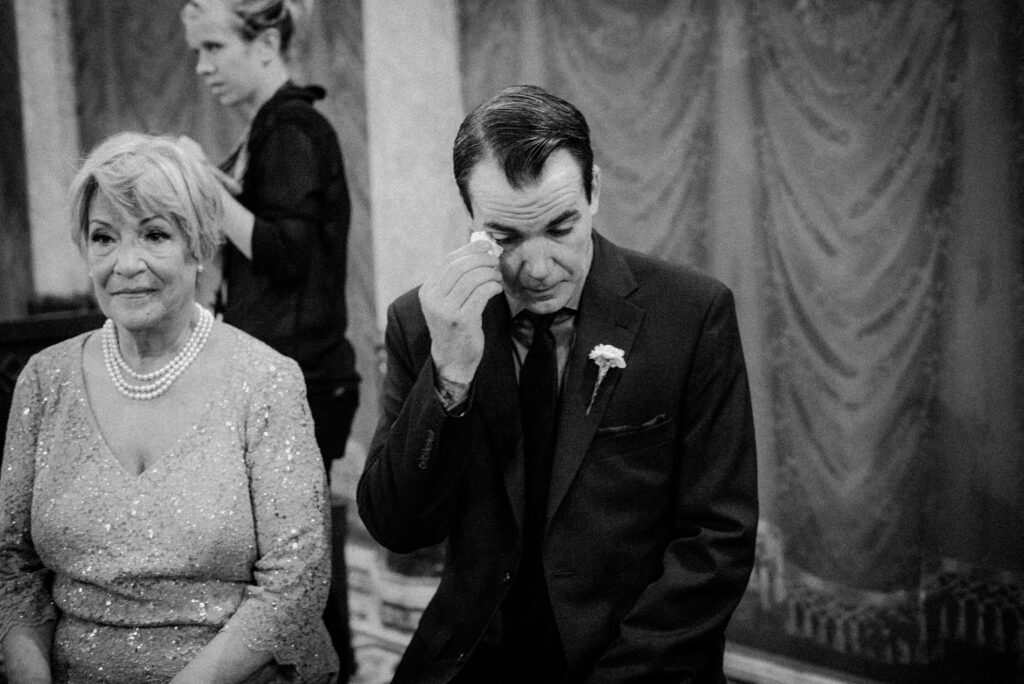
A Wedding Venue in Fairfield, California recently found itself in hot water over its catering policy. According to a story over at KGO-TV San Fancisco, the Bride and Groom booked the Bay Area venue for both the ceremony and the reception. Total contract price: $3,000. The couple signed the contract, forked over a non-refundable deposit of $1500 and moved forward with planning the big day. Sometime thereafter, the Bride informed the Venue of her choice of caterer and was told that she could use only their exclusive caterer. SPIT TAKE!
Of course, the Bride had not remembered reading anything about that in the contract. Strangely, even with her ability to read and speak, neither she nor the Groom asked about the scope of this little doozy at the contract signing. What a bummer. Well, who was this exclusive caterer? Maybe it won’t be so bad. How much would feeding 70 people cost? Try $4,000. SPIT TAKE!
Unable to afford the caterer, the couple requested the NON-REFUNDABLE deposit back. No dice. According to the couple, the Venue would not respond. So, they did what any good American would do, they called their local investigative reporter! After being contacted by that dude, the Venue immediately issued the refund, and everyone lived happily ever after.
So what if the Venue had NOT given the money back? What are some of the legal implications? Let’s discuss:
First, here’s what the contract says: “No food or beverage may be brought in except as approved by owner.” (Clearly, the Venue should have gone here for their legal documents). Based on the short glimpse of the news report, it doesn’t appear that the contract says anything other than this with regards to catering. So let’s just assume that this is all we have to work with, OK? Good. Thus, the parties have agreed that the venue has final say on any food/beverage/alcohol served at the wedding (“My father was killed by a guy from Buffalo. No chicken wing will ever be consumed on my property”). Nothing illegal about that. Point venue. What does this have to do with the serving of the food? A little bit. Here’s a couple reasons why this clause may not cut the mustard:
1. No food or beverage ‘may be brought in’ implies that food can enter without the need of a professional serving it. When I get married, all I want is Doritos, cans of Cheerwine, and Lucky-Charms Treats (like Rice Crispy Treats, but with marshmallow treasures). It doesn’t take Mr. Belvadere to pass that stuff out. The plain language here does NOT mean that the venue gets to approve the means in which my bounty is served,only the bounty. The exclusivity of the caterer in our example is an obligation to which the parties did not agree. Based on the Bride’s budget in this story, I bet that this is what they had in mind. Not necessarily Doritos. But you know what I mean.
2. Even if the clause means food AND service, the clause cannot support the venue’s use of an ‘exclusive’ caterer. Generally, when a contract provision is conditioned on one party’s approval/disapproval, and there are no standards set out that guide the decision, then the party is bound to act in ‘good faith.’ In other words, the party cannot sit back, arms folded, head shaking, and simply refuse every option indiscriminately (like trying to feed my niece vegetables). Here, the venue may argue that it acts in good faith by utilizing its ‘exclusive’ caterer for professional considerations (e.g.. knowledge of the kitchen/premises, safety record, no issues with insurance or licenses, etc.). However, the fact that ALL professional caterers presented to the venue would be denied will probably be considered bad faith. Surely, someone out there is going to have better credentials than the venue’s exclusive caterer. Indeed, the parties intended that the venue have the final say on the caterer, not the ONLY say. For that, the contract would need different wording. Point Bride.
At the end of the day, the objective of the venue (only use their exclusive caterer) is perfectly legal. However, the contract wording did not support it in this situation. Also, Doritos are perfectly acceptable as a course for your wedding dinner.
